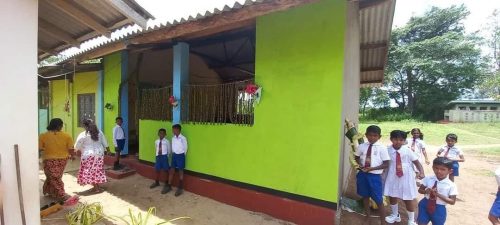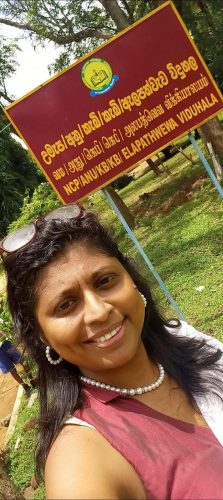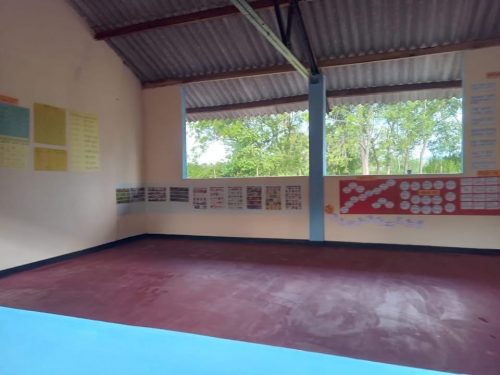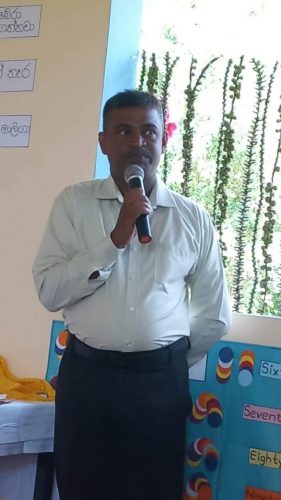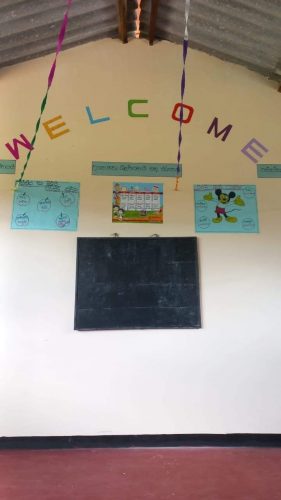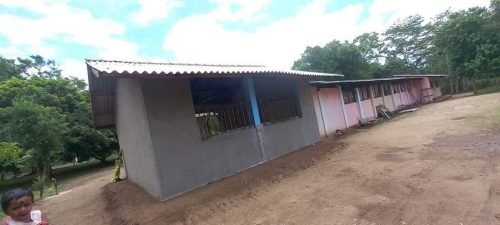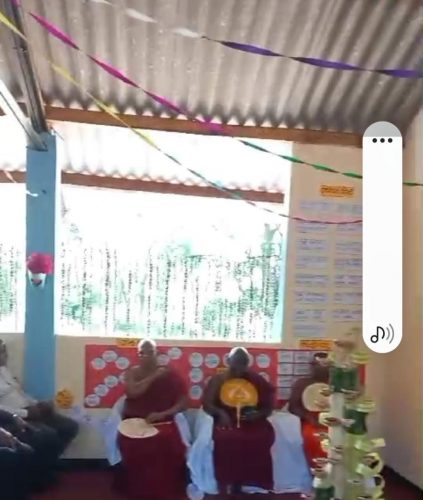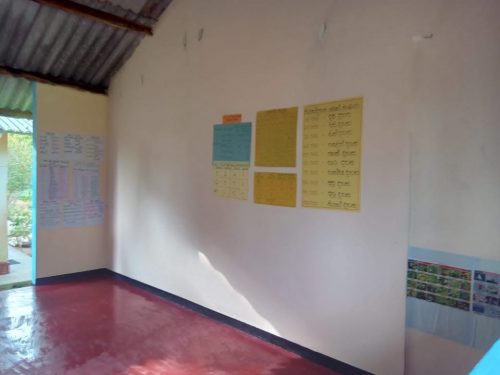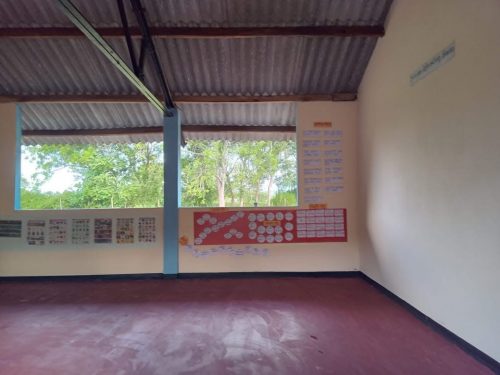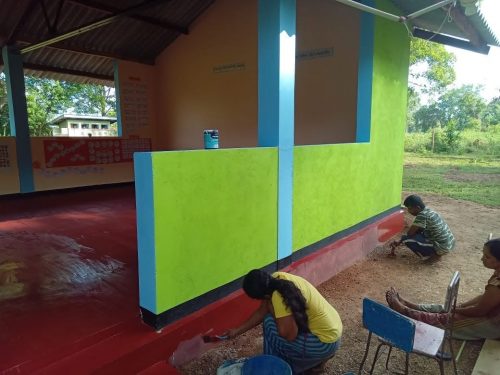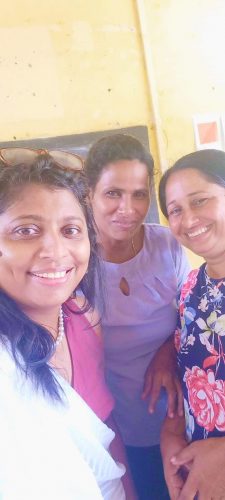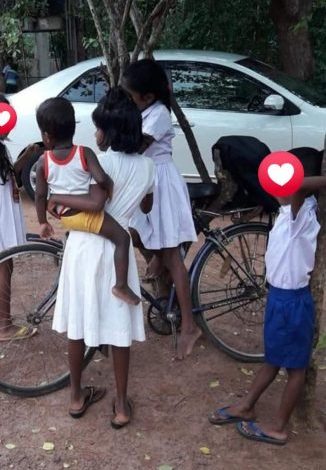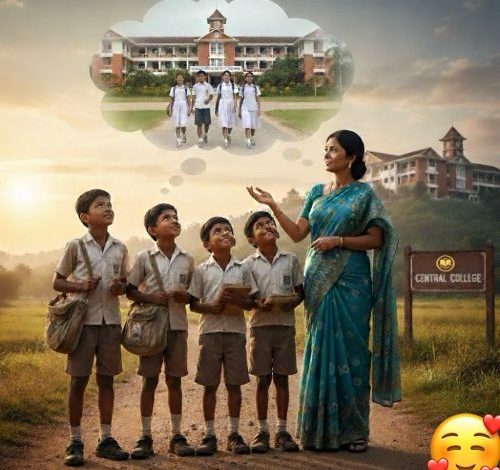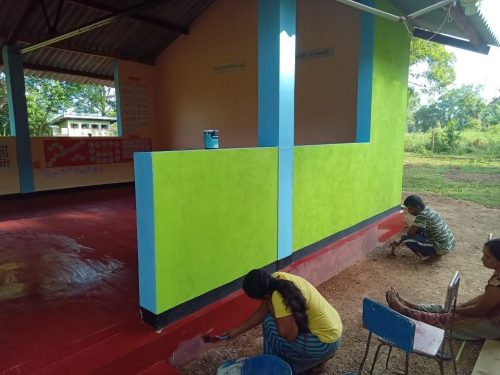
SFP 71 Alapathwewa, Kebithigollewa – A Story of Community and Hope
This school’s journey began on September 28, 2022, with the support of Mr. Samson Fernando. Working alongside him, we identified the needs of the students, and he ensured their meals were provided. After a year, the charity group of the Ceylon Electricity Board (CEB) took over the school’s program. I met Kapila from the Anuradhapura CEB during the COVID-19 pandemic. When his previous school’s food program ended, he chose to support this school instead.
Recently, a small change in our meal program made a huge difference. We used to give the mothers of the students 60 rupees for their child’s meal. When the program started at Alapathwewa School, there were only 22 students. Despite having just 22 children, the school needed to maintain five classrooms and had a shortage of one. The principal had been thinking about how to build a new classroom for eight years, on a foundation that had been in place for 30 years!
The principal and the villagers came together to discuss the construction. But when they decided to start, they had zero money. The mothers, however, requested that the 60 rupees they received for their children’s meals not be given to them, but instead be kept in the school development fund. Thanks to this incredible gesture, they had saved up 97,000 rupees when they laid the foundation stone.
The labor was entirely provided by the community. Not a single mason was paid. The sand was gathered from the nearby stream by the mothers and the principal himself, and not a single cent was spent on it. Since the mothers didn’t accept the 60 rupees we sent for each of the 22 students, that money could be used to buy bricks. Other villagers contributed small items where they could, and the principal of Kebithigollewa Central School even donated an iron beam.
Then, there came a point when everything was in place, but they were stuck without covering for the roof. One morning around 10:00 AM, the principal called me, asking for help to find the funds. Just at that moment, I received a call from a doctor Ruwan Suvadarathna. He told me that his wife reads my posts and they wanted to help, asking me to find a place where they could donate. I gave him two proposals, and he immediately agreed to fund the entire roof for Alapathwewa School. By two or three in the afternoon, the principal had received all the money—173,000 rupees.
Within a few months, a beautiful new building with a 20×20 foot classroom was completed.
The auspicious time to open the new building was 9:18 AM. I left my home at 8:15 AM, passing through elephant-infested roads and narrow, winding paths where branches brushed against my body. I somehow managed to arrive at the school with five minutes to spare. A journey that normally takes an hour and a half was completed in record time, and I made it just in time for the ceremony.
Today, we officially opened the school. The main student leader, the principal, and I—representing the people who are in “Piku Pihi” all participated in the ceremony. Photos attached here will give you a glimpse of the beauty of this new classroom.
We were also able to donate exercise books for the students and storybooks for the school library. I extend my sincere gratitude to everyone who contributed to this.
“How many students are there now, sir?” I asked. “Thirty-three,” he replied.
Let me answer the question of how a school that had 22 students in September 2022 has gained 11 new students. It’s a huge increase. When the community trusts the school, children come to the village school. On this journey, I also met the first university graduate from this school, who passed the scholarship exam. In 2019, this school even ranked fifth in Anuradhapura district for scholarship exam results. It seems that every year, one or two of our students pass the scholarship exam.
In the middle of forests, down winding and muddy paths, in elephant-roaming areas, there are small, single-hall schools like this one. It’s incredibly important that these schools remain open, even just for the rainy season. If they are, the young children in the village who can’t travel to a distant school will attend. But to keep such a school open, you need a strong and dedicated principal—a “Loku Sir” —and a staff who are willing to show the community what’s possible.
We may not be able to give everyone an equal education, but we can’t fail to give them a fair opportunity to learn. This is the story that every 60 rupees we contribute is trying to tell. It’s not just for their stomachs, but for their minds as well.
Gratitude to:
* Mr. Samson Fernando and Ms. Iroma Fernando for starting and continuing the school’s food program.
* Kapila and the CEB Charity Group for unknowingly providing the foundation for the building with your own money.
* Dr. Ruwan and Himani Suvadarathna for single-handedly bearing the entire cost of the roof.
* The Principal and the people of the village for empowering a principal of this caliber.
By Dr. Kiloshini Hendawitharana
